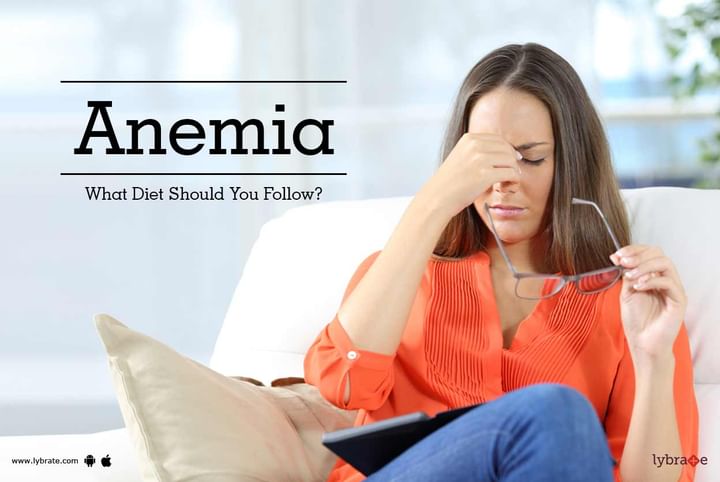Get the App
For Doctors
Login/Sign-up
Last Updated: May 30, 2023
BookMark
Report
Anemia - What Diet Should You Follow?
Dr. Pooja SinghalDietitian/Nutritionist • 19 Years Exp.Diploma in Diet and Nutrition, Diploma in Naturopathy & Yogic Science (DNYS), MBA in Hospital management , Diabetes Educator, Certified insulin pump trainer
Anemia is a disease which occurs due to the lack of red blood cells or hemoglobin in your body. The body transports oxygen and the nutrition you get from food, to various body parts through hemoglobin, and a deficiency can cause lower supply of these important elements to the body. Which is why, the patient may feel a lack of energy, dizziness and even exhaustion. Most people don't realize its existence, so it's important that you know the symptoms, causes, and cures of this blood disease. And, following are the foods recommended by dietitians that one should eat to avoid anemia.
- Lack of iron: There are various forms of this illness, and one of it is iron deficiency anemia. The red blood cells in the blood contain hemoglobin, which requires iron for formation. If the diet is not adequately loaded with iron, the person can have iron deficiency anemia. This is the most ordinary one that occurs to people, but with adequate care through food, exercise, and medicines, you can tackle it.
- The root cause: Faulty production of red cells (hereditary conditions like sickle cell anemia, bone marrow disorders, etc. is the common cause of anemia. Excessive destruction of red blood cells, which is not compensated by normal production (spleen disorders, thalassemia, etc.) can be another reason. People with blood loss conditions (ulcers, gastritis, internal bleeding, excessive menstruation, childbirth, etc. and the ones who consume a poor diet can also get this blood disease.
- Know the symptoms: There are essentially nonspecific symptoms of anemia, but overall fatigue with very low energy levels as the body does not receive enough nutrition to perform various functions can be one of them. Reduced heart rate, fainting, and pallor of skin and whites of the eye are common indicators of this illness. Check with your doctor if you face any of these issues.
- Foods for prevention: If you follow a healthy diet that is full of nutrients like iron, you can keep anemia at bay. Remember, weight is not an issue here. If you have a good diet intake, you need not worry about being slim. Often, women who are thin get labeled as anemic, which is far from truth. When it comes to nutrients, iron-rich foods should be eaten along with vitamin C to improve its absorption. Vitamin B12 also plays a significant role in absorption. Meat including red meat, lamb, pork, chicken, beet, ham, turkey, and seafood including salmon or tuna can be included in your diet. Other foods like legumes, soybeans, veggies (dark green leafy vegetables, spinach, peas, broccoli), dried fruits and nuts, tofu, pumpkin and eggs are rich sources of iron that can be consumed by vegetarians. Cereals like red rice, brown rice or fortified cereals with a good source of iron can also be included in the diet.
- Don't miss out on iron, ladies! Women are likely to be anemic (with symptoms like fatigue and paleness) and hence they should constantly monitor for iron levels and shift to a diet rich in iron. Furthermore, iron supplements can be consumed in the form of tablets, syrup, or tablets with the guidance of a doctor. In severe cases, where there is a significant blood loss, especially with childbirth or internal bleeding, the sufferer may require transfusion. All in all, anemia is definitely manageable with planning of diet, especially during times the like menstruation and pregnancy. So, taking care on time is a vital step. If you wish to discuss about any specific problem, you can consult a Dietitian/Nutritionist.



+1.svg)
